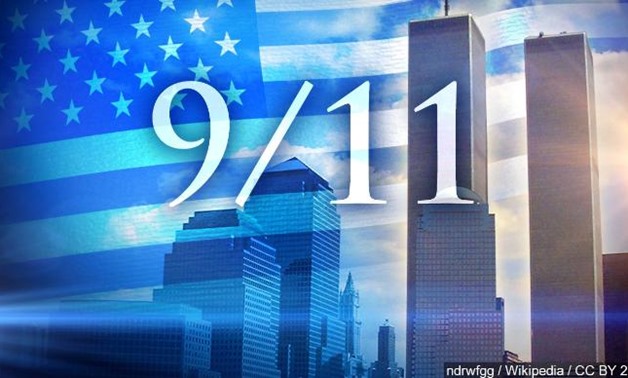
9/11 - WTAP
CAIRO - 11 September 2019: Eighteen years have passed since the most difficult event in the history of the United States of America in its modern age: September 11, 2001.
Certainly a black day for any US citizen, where the World Trade Center Twin Towers collapsed into a massive pile of stones and dust.
After September 11, events and equations changed, and the Middle East had the lion's share in this rapid changes. The Middle East is no longer the same, and the view of Arabs, Muslims and this region of the world has not remained the same either. More research and scrutiny focused on the Middle East more than ever in an attempt to understand its strategies towards the world and specifically the West.
According to Hisham al-Qarawi, in the introduction to his book "American Research Centers after 9/11,'' stressed that the events of September 11 revived these centers again, pointing out that the concern for such studies was not only on the level of citizens, but was a government concern, clarifying that during the event, the US State Department announced measures to encourage students to register in the departments of Oriental languages and civilizations.
The research centers have also been interested in promoting Middle Eastern studies and attracting scholars' attention with scholarships and academic assistance of various forms.
The researcher used figures that confirmed that the percentage of students interested in studying languages and oriental studies increased after the events, which seems to be consistent with a study conducted between October 26 and 27, 2001 in which twenty students from the Fulbright program with a similar number of students from the University of Maryland cooperated in the study.
A number of American students exposed that their first impressions of Arabs were created by the media, Hollywood films, television news footage, and regular protests of America. Arab students also showed that their impressions of the Americans were also derived mainly from the media.
The only variable was the American people, who had more openness to Muslim, Arab and Middle Eastern countries. According to a study published by Tunisian writer Hicham Karoui, more than 9% of American youth aspired to study science and eastern languages, after 9/11.
According to a study published by the Arab News Network entitled "Islam in the West after 9/11", the attacks of September 11 is an important impetus for the study of Islam and research in its scope, through the most important universities and institutes of strategic studies in the West.
These studies have suffered from general problems, such as ignorance in the Arabic language, in addition to the mechanism of the war on terrorism after 2001 prevented researchers, and the provision of a calm atmosphere to study the phenomenon of a serious and a very complex situation.
The study also confirmed that although the percentage of Americans with anti-Islamic sentiments was 13% in the aftermath of the September 11 attacks, it rose to 46% after nearly six years of the catastrophic event.
According to a report published by the Saudi website “Tamkeen” (Empowerment), the West showed a focus on Arabs producing the events of September 11, 2001. There was a rising desire to learn more about the region and its culture.
The impact of the war on terrorism helped to improve the translation from Arabic into English, and on the reception of Arab literary works, this impact may have a negative impact on the field of English translation of Arabic literature, which made novels now read as social documentaries by those seeking information about Middle Eastern politics, rather than focusing on the value of the literary as a form of art.

Comments
Leave a Comment